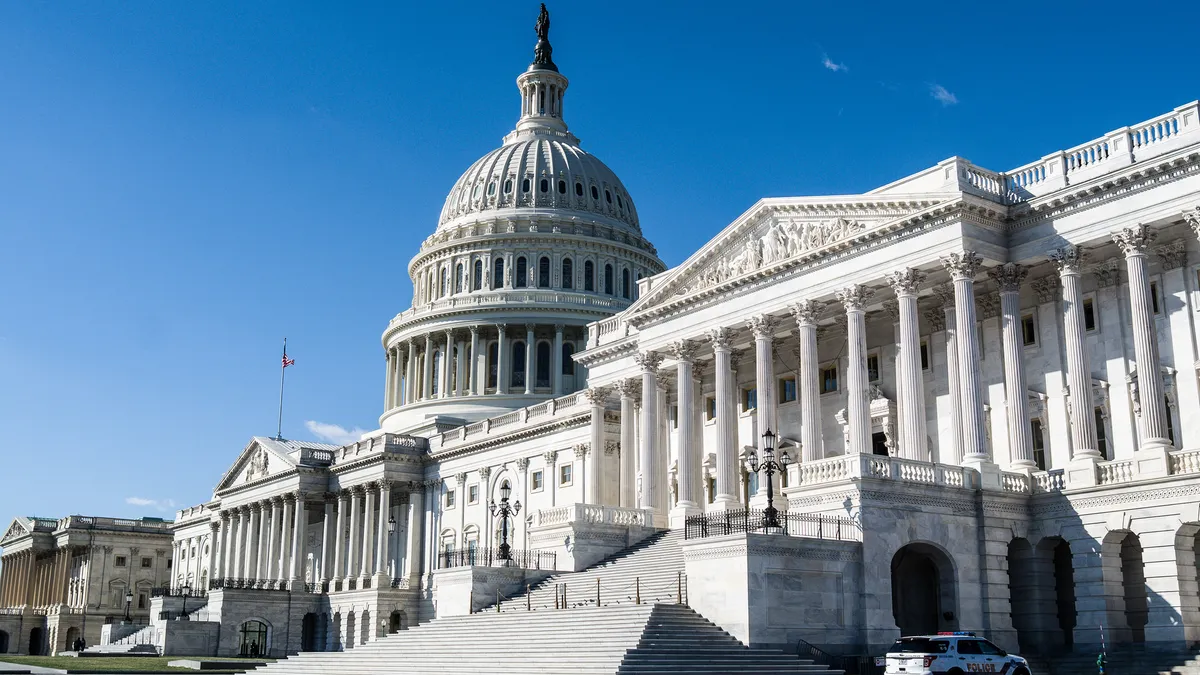Dive Brief:
- A group of 17 U.S. Senators and House members, led by U.S. Sen. Elizabeth Warren, D-MA, reintroduced the American Housing and Economic Mobility Act to tackle the effects of the housing affordability crisis. It aims to reduce housing costs for renters and buyers, address the shortage of affordable homes and address the effects of decades of housing discrimination on people of color.
- The bill would invest about $475 billion in federal programs over a 10-year period to preserve or create more than 3 million housing units for low- and middle-income families. That would also bring down rents 10% and create 1.5 million new jobs, according to an independent analysis from Moody's Analytics. The bill would also change existing laws that protect discriminatory housing practices and lead to segregation.
- This legislation was first introduced last September and accompanying legislation was introduced in December, but it did not advance prior to the new session of Congress. The latest version introduced in the new session of Congress reportedly builds on last fall's bill.
Dive Insight:
The fact that this legislation was co-introduced by so many legislators from different parts of the country — including Louisiana, Michigan, Pennsylvania, Tennessee and Wisconsin — from both chambers of Congress indicates the magnitude of America's housing affordability crisis and that it is no longer merely a problem for the country's largest, most expensive cities.
"The cost of housing is squeezing American families in communities all across the country — rural, suburban, urban — whether they're struggling to pay rent or trying to buy a home," Warren said in a statement. "It's time to stop nibbling around the edges and, instead, pass this big, bold proposal to solve our housing crisis and take the first steps to address the legacy of housing discrimination head on."
The funding would primarily go toward creating, rehabilitating and preserving millions of housing units across the country over the course of a decade. But it also is believed that increasing the capacity of available units will lower housing prices.
In addition to addressing capacity and costs, the bill aims to fix some forms of housing inequity. The bill would provide assistance to people negatively affected by existing and previous federal housing practices dating back to the 1960s, when the federal government denied mortgage subsidies to black families. The measure also would help people whose wealth was destroyed by the housing crisis 10 years ago, which disproportionately affected people of color.
Such discriminatory practices hurt families' short- and long-term wealth. But they can also lead to segregation within a community. Last year, city leaders and housing advocates gathered in Washington, DC to criticize some federal housing policies, saying the U.S. Department of Housing and Urban Development should do more to fight segregation and uphold affordable housing.
Last year, an article in The Atlantic said Warren's original bill was "ambitious" and had "no chance" of passing in the Republican-controlled Congress, but it could at least be seriously considered if Democrats regained control of at least one branch of Congress in the mid-term elections. Democrats did regain the House in November, increasing this bill's potential to get farther than it did when it stalled last year.












